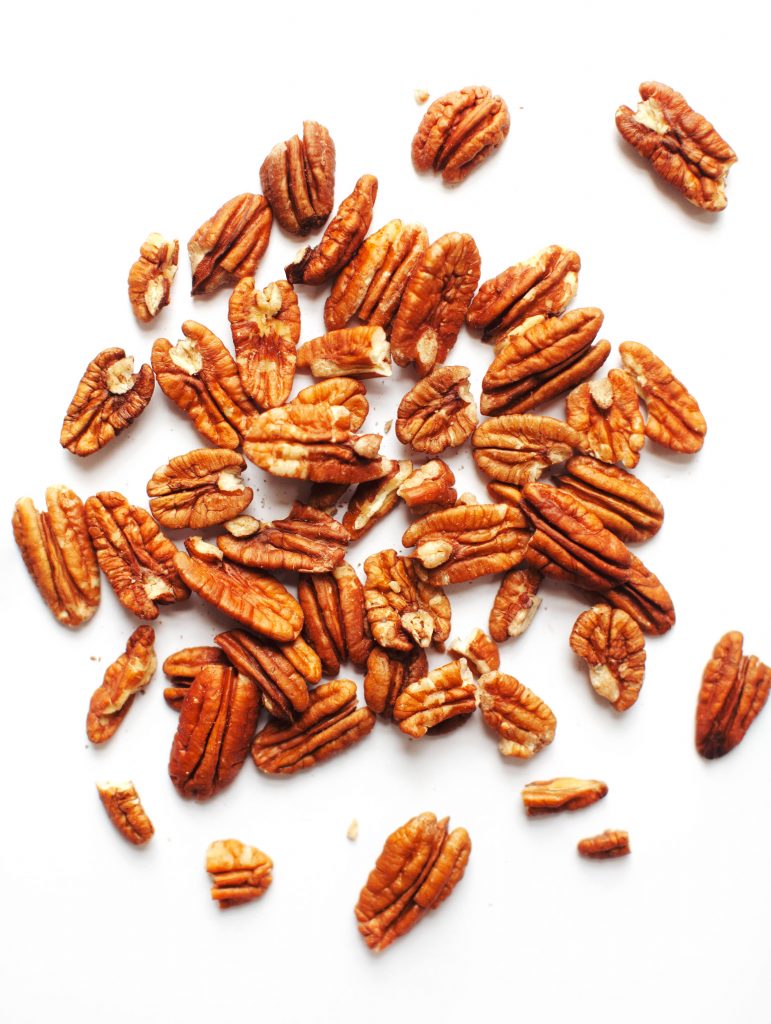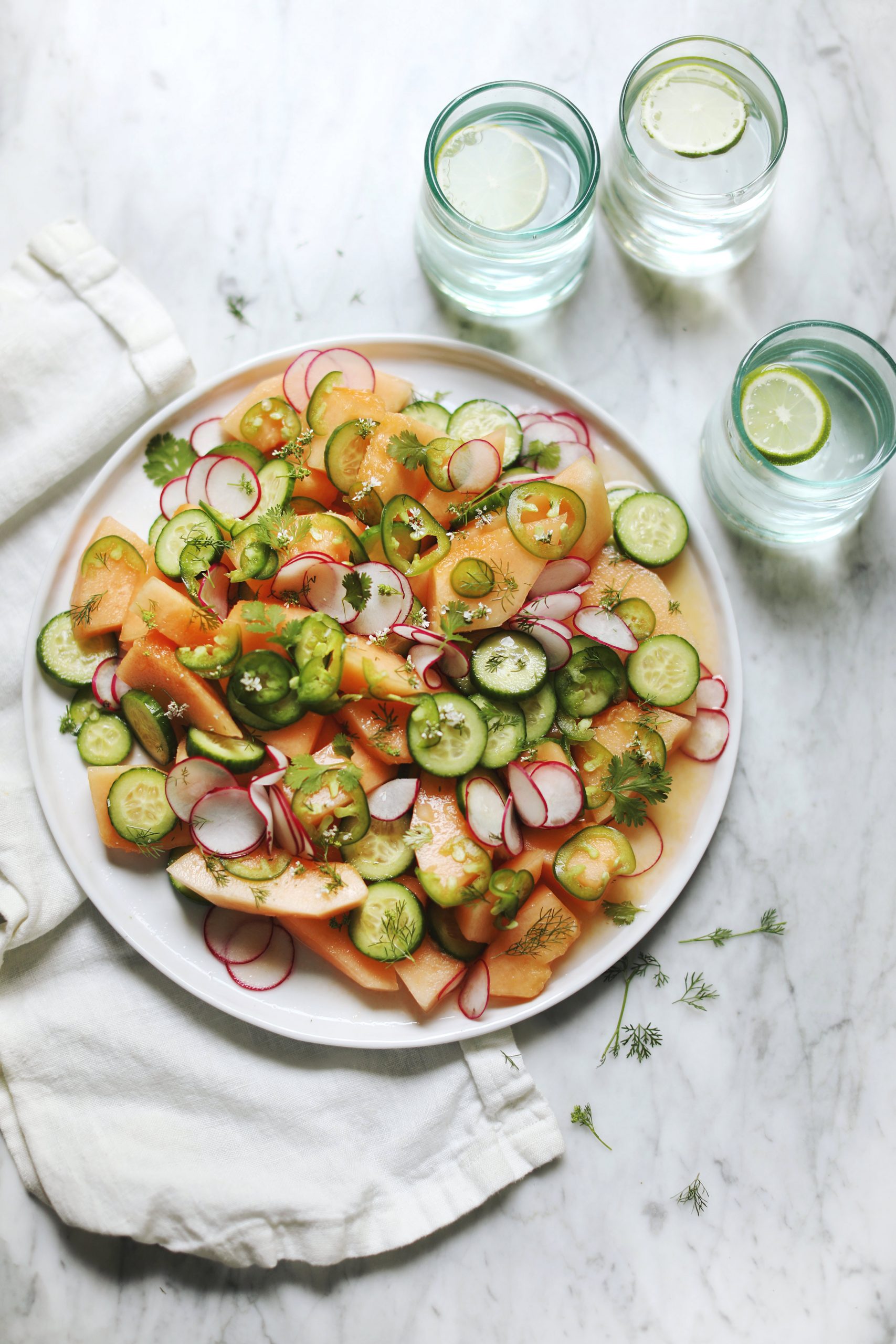Pecans are delicate, sweet and mild, with a kind of softness that really compliments leafy salads and desserts. If purchasing shelled pecans, look for ones that are plump and uniform in colour and size. Pecans are susceptible to spoilage after shelling, so keep them in the fridge or freezer to extend their shelf life.
- The fat found in pecans is largely monounsaturated and polyunsaturated, meaning that they are heart healthy and can actually help lower LDL cholesterol.

About Nuts & Seeds
Nuts and seeds are concentrated, high-energy foods that are always good to have on hand in your pantry. Nuts and seeds are typically the best sources of vitamin E and plant-based essential fatty acids.
Nuts and seeds are healthiest consumed after they have been soaked for some hours to improve their digestibility and increase their nutritional value. Raw, unsprouted nuts and seeds are difficult to digest.
Buying
It is best to buy nuts and seeds in the shell whenever possible, as this is their natural packaging. Stores this way they will keep for up to one year. To ensure quality, visit a shop you know has a high turnover to ensure freshness and taste the nuts before purchasing. Purchase organic whenever possible, as pesticides and toxins tend to accumulate in high fat food, such as nuts and seeds. Never buy roasted nuts and seeds, or those processed with oil, salt, sugar, or other additives. Roasted nuts and seeds contain rancid fats and are a source of harmful free radicals. Nuts and seeds should always be purchased raw and toasted at home if desired.
Storing
Store hulled nuts and seeds in glass containers in a dark, cool place – heat and light speed up oxidation. Hulled nuts will keep at room temperature for one to three months. The fridge is an idea place as it is both cold and dark; storing here will ensure freshness for up to six months. Do not store nuts in plastic.



